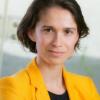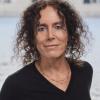
Striving for excellence and designing truly innovative solutions in science requires many creative minds from different disciplines and parts of society to work together.
Through the FIRELOGUE project, the Equity and Justice research group in the IIASA Population and Just Societies Program brings together different disciplines, sectors, and stakeholder groups to co-develop a new set of strategies for wildfire risk management. Funded by the Horizon Europe program for the European Green Deal, the project will, for the first time, explicitly incorporate equity and justice dimensions in the strategies, and thus foster a just transition towards managing the growing threat of wildfires.
In 2021, IIASA launched an entirely new research program called Strategic Initiatives, which focuses on identifying and fostering novel high-impact initiatives. Through an internal call and selection process, IIASA initially selected two projects, the JustTrans4All and the fairSTREAM projects, both with potential for high global and regional impacts.
The JustTrans4All project, with its diverse team of researchers, uses innovative systems analysis to map out socially and environmentally just transition scenarios to a decarbonized future. Through a co-creation workshop in 2021, the project identified specific and relevant research interests to IIASA member organization communities with the help of representatives from 20 member countries. The project aims to reflect justice concerns in net-zero transitions and will inform policy design that aims to achieve the highest possible levels of human wellbeing in line with the UN 2030 Agenda and the Paris Agreement.
In the fairSTREAM project, IIASA researchers aim to understand and reconcile issues of fairness at the food–water–biodiversity nexus and explore agent-based models as a means for upscaling local insights to an entire region. This effort is supported by developing co-production methods, requiring the integration of multiple sources of knowledge and the cooperation of diverse societal actors. The main co-production effort is currently ongoing in the Bhima basin, India, where the team is working with experts and the public to understand the local dimension of the food-water-biodiversity nexus and the context-specific issues of fairness.




